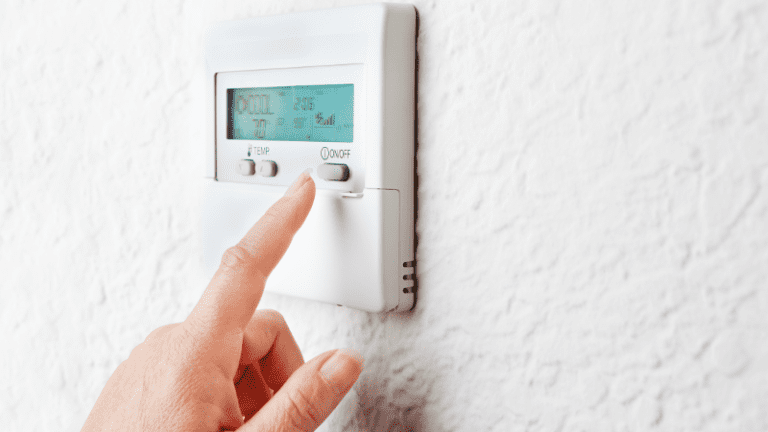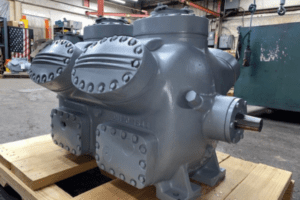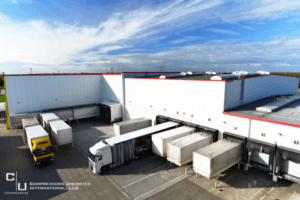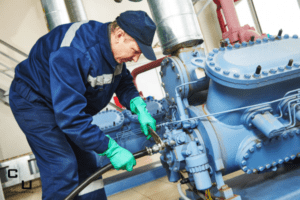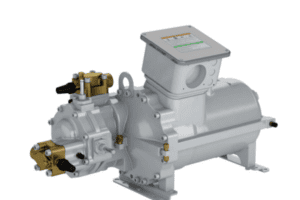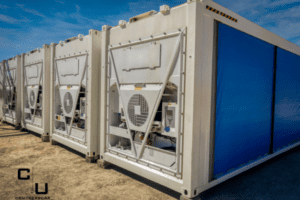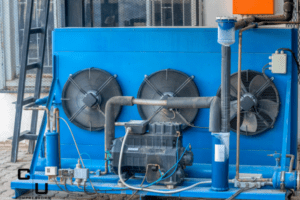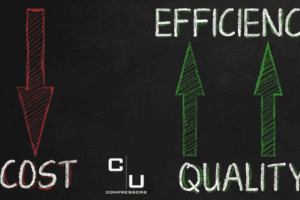With a commercial HVAC system, a small difference in energy consumption can add up to hundreds or thousands of dollars saved. While some factors that influence HVAC performance are out of anyone’s control, there are many elements you can influence directly.
The biggest thing you can’t control is the age of the key components within your system, especially the compressor. When other parts of your HVAC aren’t functioning as they should, the compressor puts in extra work to make up the difference. But the opposite isn’t true.
If the compressor fails, then the entire system comes to a stop in seconds.
With this in mind, the overall performance of every part of your commercial HVAC helps to determine the “age” of your compressor. With regular maintenance, a modern commercial compressor can be expected to last eight to ten years. It’s very rare for a compressor to give out suddenly.
Know that it’s essential to take a “whole system” approach to raise your HVAC’s efficiency. You can’t stop the aging process, but you can counteract many of its effects on performance. By doing so, you ensure that the compressor will have its full-service life rather than retiring prematurely.
All in all, the efficiency of your system can be measured in terms of its energy output. Highly efficient systems create a virtuous cycle in which required temperatures are met quickly. Short cooling cycles save on the cost of ownership and reduce mechanical wear, improving the system’s longevity.
Aging systems tend to draw more power than new ones, but that’s only one part of the story. If any one part of the HVAC is compromised, it makes the job of all the others harder. This is reflected in an energy bill that rises consistently and spikes out of proportion to seasonal demands.
When you look at savings and efficiency as essentially a problem of conservation, it’s much easier.
By doing the right things to save money, you will also be meeting environmental commitments, and vice versa. Luckily, you don’t have to spend months on the task. With a little know-how and the right HVAC parts, you can make a difference right now. That’s true even if the outdoor temperatures are soaring.
How to Conserve Energy for a Commercial HVAC
Commercial HVAC energy conservation is a consideration for every business. It also tends to show up in the design of new construction. But once the system is up and running, it doesn’t mean your hands are tied. Maintenance and optimization continue to play major roles in ongoing success.
Let’s look at some of the best ways to conserve energy in a commercial HVAC:
1. Update and Calibrate Your Thermostat
Thermostats act as the brain of an HVAC system, but they gradually go out of calibration. This can make a substantial difference in when a cooling or heating cycle starts and when it stops. Eventually, you may develop erratic system performance due to conflicting signals from the various sensors.
A sophisticated electronic thermostat is better at saving energy, but it is also more sensitive. You must keep a close eye on it using the provided software and any other tools from the manufacturer. One of the most basic pieces of maintenance is to ensure all thermostat sensors are clean.
If you are still using an older model thermostat, you can unlock higher energy savings potential by upgrading. Just bear in mind that, eventually, even these complex systems do need to be replaced. So, consider the amount of savings you stand to gain as well as the total cost of ownership.
2. Keep Your Ducts and Filters Clean
Just like the blood flow of the body, it’s the circulation of air in your HVAC system that helps to ensure none of its constituent parts become stagnant. Indoor air has the potential to be much more polluted than outdoor air, so it is crucial to keep ductwork and air filters clean.
A commercial HVAC can have filters at several different points. As they get dirty, reduced flow causes the HVAC system to work harder. Be sure you are following the expected schedule, whether it means cleaning or replacing individual filters. This also helps fight against the development of mold.
3. Create Temperature Zones
Most HVAC systems can be made more efficient by creating distinct temperature zones. This is a great way to ensure the temperatures of different areas of a structure or even a multi-building campus are aligned with the way those spaces are used.
To create more temperature zones, you may need more compressors. A remanufactured commercial compressor delivers the performance you expect from an all-new model at a fraction of the cost, often weeks sooner than sourcing a new unit. That convenience and savings can open up fresh ideas for maximizing your energy savings.

